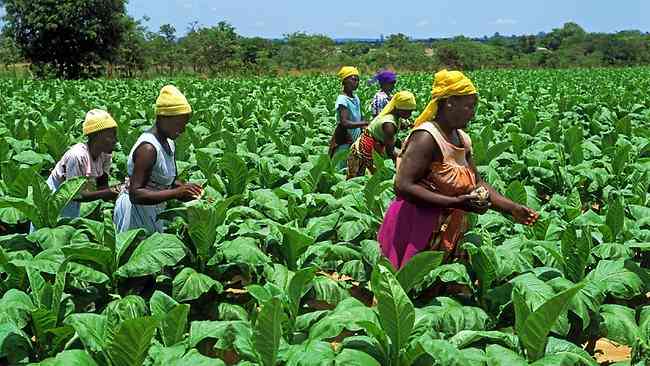
FARMERS have applauded the Tobacco Industry Marketing Board (TIMB), Kutsaga and Hwange Colliery Company Limited for developing a coal package meant to reduce production costs and address deforestation concerns.
To address fundamental production issues affecting sustainability and farmer viability, the three organisations have come up with a special coal facility for tobacco farmers.
The facility will, however, benefit only TIMB-registered growers with active grower numbers. TIMB said negotiations were underway with transporters to ensure that the coal is timeously delivered closer to tobacco growers at affordable rates.
“The high cost of tobacco production is one of the main challenges bedevilling tobacco farmers in Zimbabwe,” TIMB spokesperson Chelesani Tsarwe told NewsDay Farming.
“The high costs stretch from production inputs to curing energy. This high-cost structure is negatively impacting the viability of tobacco farming in the country.”
Tsarwe said tobacco farmers will realise significant savings in the curing process.
Zimbabwe Tobacco Growers Association president George Seremwe commended the three organisations for heeding the grassroots outcry.
“The outcry has been us tobacco farmers through our associations, lobbying and advocating reduction on the cost of production and they started sort of goal rolling by engaging different suppliers in this case, Hwange Colliery Company to come up with cheaper modalities, better way of cushioning the farmer in the form of reduction on the cost of production. We are very happy and pleased to hear such an initiative happening,” he said.
- Hwange plans massive capex after ZW$4 bn loss
- Endemic govt corruption at Hwange Colliery Company ...Van Hoog comes out guns blazing
- Coal reserves sold for a song: Report
- Tobacco farmers cry foul
Keep Reading
“Finally, our call has been heard and at the same time we are appealing to other suppliers and stakeholders to start working on the reasonable profit margins rather than putting exorbitant profit margins.”
He said middlemen were causing price distortions in the market and was hopeful that more people would participate in the tobacco production “because it's going to be profitable if we manage to reduce the cost of production”.
Zimbabwe Tobacco Association chief executive officer Rodney Ambrose said over 70% of the tobacco crop is cured using unsustainable wood, with deforestation increasing.
"While the industry embarks on reforestation programmes, more efficient curing systems and alternate sustainable curing fuels, stop-gap measures need to be put in place in order to ensure that we maintain our production levels and protect the livelihoods of thousands of farmers," he said.
"One of the measures is coal, and to reduce the cost of purchasing and delivering the product to farmers."
Zimbabwe achieved a record crop of 296 million kilogrammes of tobacco for the 2022/2023 season.
Tobacco production contributes significantly to gross domestic product and is the major export production in the agricultural sector.
However, it has hugely contributed to deforestation, carbon emissions and contamination of water bodies.
TIMB has embarked on various initiatives to mitigate the negative impact tobacco production is having on the environment.






